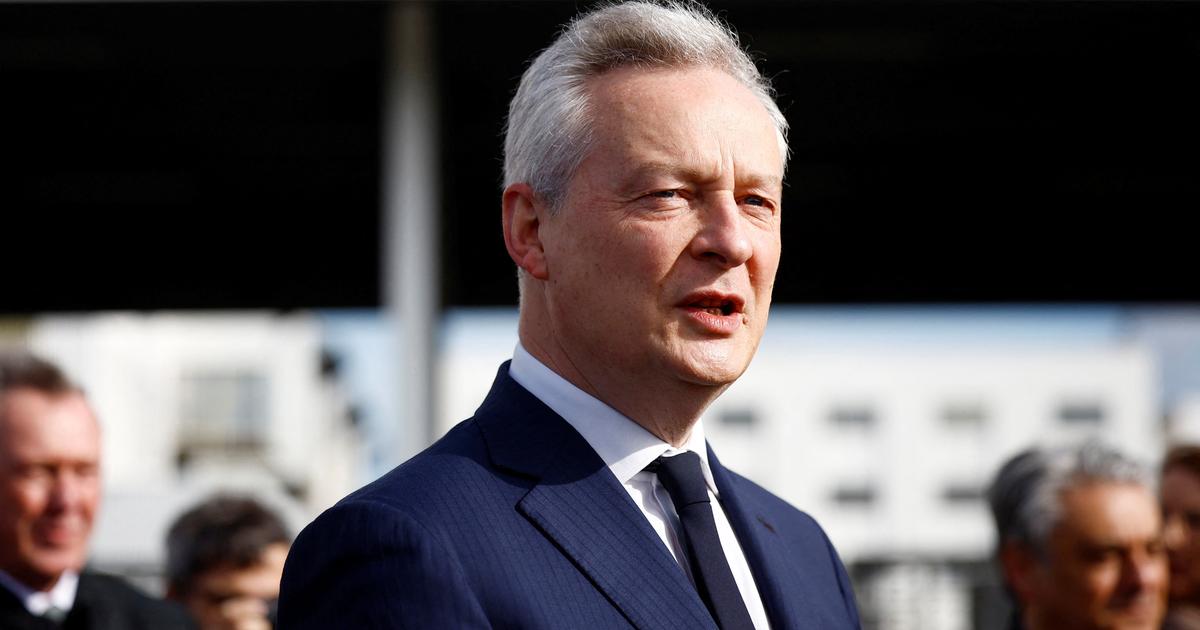The President of the European Commission, Ursula von der Leyen, at a press conference in Brussels after holding a virtual summit with Chinese President Xi Jinping last September.YVES HERMAN / Reuters
The EU and China are preparing to give a final move to the world geopolitical board two days before the end of 2020. The two blocs plan to close on Wednesday the great investment agreement that they have been negotiating for seven years, after Brussels has wrested concessions from Beijing in labor rights and climate policy.
The pact overturns the battered relations between the EU and China, but it may cause the first disagreement with the future president of the United States, Joe Biden, whose team sought to make a common front with Europe to combat the bad commercial arts of the Asian power .
In a full-
blown now or never
, the European negotiating team recommended that the EU leaders close the investment agreement with China, according to community sources.
It is not a trade agreement, but Brussels does consider it the most ambitious economic pact ever signed by Beijing with any country or bloc, both because it will pave the way for European companies operating in China and because of the concessions achieved in labor rights.
The agreement, however, has its limits, and this Tuesday the EU was forced to demand the "immediate" release of journalist Zhang Zhan, sentenced to four years for her coverage of the Covid-19 crisis in the city of Wuhan.
After seven years of negotiations, the contacts seemed to have entered a dead end last spring.
Then the EU and China saw their huge differences.
Not only in the conception of the free market, but also of human rights.
In the closing days of the year, however, a huge window of opportunity has opened.
And big enough that, according to diplomatic sources, no partner has opposed the deal.
Beijing began to realize already in summer that it needed the EU by its side in the face of pressure from the US If Donald Trump won, the escalation of hostilities was assured.
And if Biden did, nothing guaranteed a reduction in tensions.
On the contrary: there was the danger of greater coordination with Brussels.
In turn, German Chancellor Angela Merkel, who has the rotating presidency of the EU, had made it a priority to sign an agreement that would end practices that are damaging her country's industry.
The agreement, then, means the first clash with Biden when he has not yet taken office.
Just a week ago, the national security adviser to the president-elect, Jake Sullivan, affirmed through Twitter that the next US Administration will appreciate that both blocs are promptly consulted about their "common concerns about China's economic practices." .
A senior community official took the issue down and was convinced that the agreement will favor transatlantic relations, which had been damaged during the time of Donald Trump, which ends on the 20th.
According to the sources consulted, the agreement that, if nothing goes wrong, will be announced this Wednesday, is a leap forward in the definition of a more even game board between Chinese business giants and European companies.
Before the EU-China summit in September, the Xi Jinping Administration had made commitments on technology transfer or transparency in business subsidies that even surprised Brussels.
At that meeting, the president of the European Commission, Ursula von der Leyen, managed to push China to accept that European companies can operate in the Asian country under the same conditions as the rest.
There were only two issues left.
And no less: sustainable development, key to the European goal of eliminating fossil fuels by 2050, and labor rights.
China has finally agreed to have progress in sustainability evaluated by a panel of experts.
In the labor sphere, community sources explain that Beijing is committed to complying with the conventions it has already signed from the International Labor Organization and to ratify the treaties that prohibit forced labor.
Of course, with an ambiguous wording that will not prevent a stormy process in the European Parliament and strong pressure from broad sectors of civil society.
In exchange, China manages to have as a partner a market of more than 450 million consumers in the face of the uncertain direction that the Biden Administration may take.
Beijing also maintains the investment position it had achieved in Europe and is even expanding it by gaining access to sectors such as renewable energies.
And all this just when the capitals began to be more united in the conviction that it was necessary to stand up to the unloyal practices of Beijing, if necessary by vetoing their companies from public tenders.
The investment agreement makes this option unlikely, although community sources argued that the EU will maintain its instrument to control investments in assets that can be considered strategic.
Diplomatic offensive
Faced with the urgency of reaching the agreement, the Asian giant has increased diplomatic pressure in injury time.
On Christmas Eve, Prime Minister Li Keqiang telephoned the Prime Minister, Pedro Sánchez, as well as his Dutch counterpart, Mark Rutte, with the intention of seeking their support.
"We hope that the EU will continue to provide a fair, open and non-discriminatory business environment for Chinese companies," Li told Sánchez, according to the Xinhua news agency.
"Xi appears to have instructed his team to make generous assignments to complete an agreement after Biden's victory in the presidential election," Emre Peker, director for Europe at the Eurasia consultancy, noted in a recent report.
"The main focus is on market access and protection of intellectual property," he adds.
The Spanish Government would already be adjusting its legal framework to accommodate these new changes.
Last week, the National Development and Reform Commission and the Ministry of Commerce jointly enacted the bases of a new regulation for foreign capital investment.

/cloudfront-eu-central-1.images.arcpublishing.com/prisa/2EJHA5HOMRBBHJGMPTMKN5VR3A.jpg)


/cloudfront-eu-central-1.images.arcpublishing.com/prisa/DH2SXR3OWJG27DGCQVSC5AQDNE.png)





